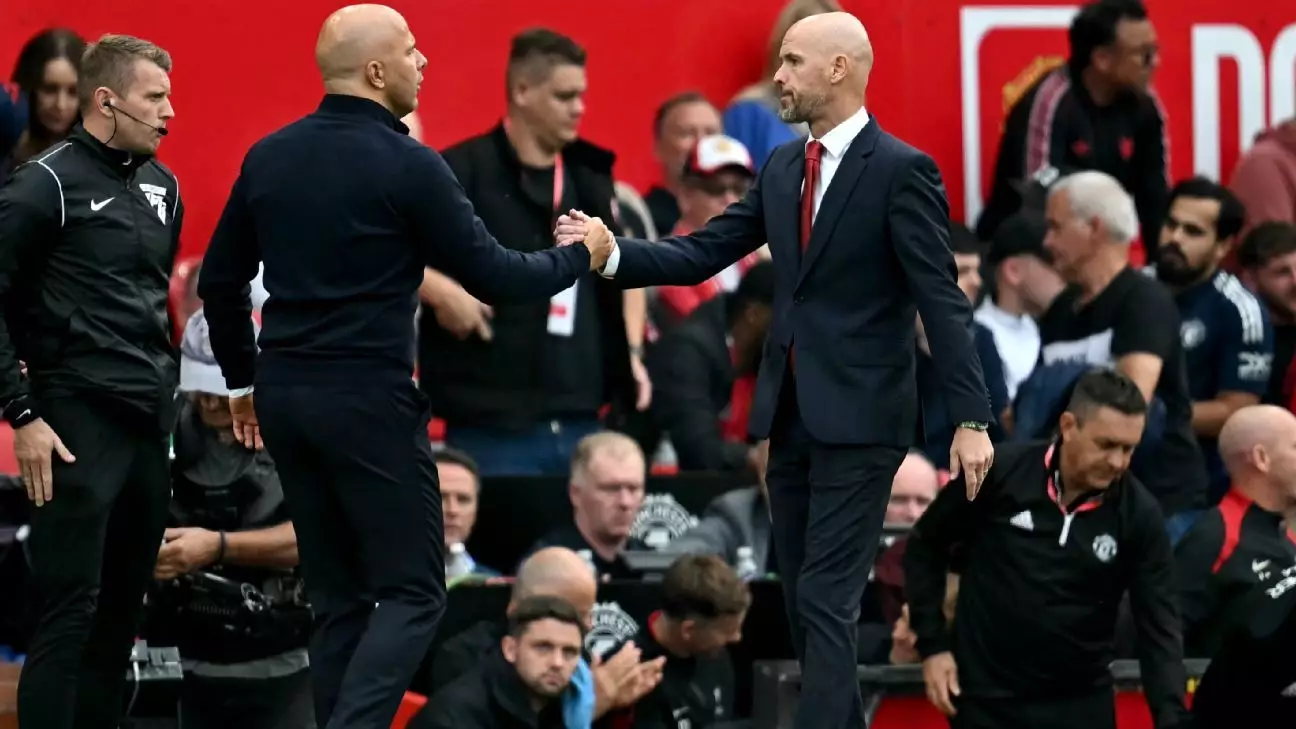The recent sacking of Erik ten Hag from his managerial position at Manchester United has triggered a wave of empathy and reflection among Premier League managers. As the football community witnesses the shift in leadership at one of the most storied clubs, it prompts a question: what does this mean for the future of both Ten Hag and Manchester United?
Erik ten Hag’s termination marks the conclusion of a tumultuous tenure of just over two years at Old Trafford, punctuated by highs and lows. Known for his detailed tactical approach and commitment to attacking football, Ten Hag’s reign was characterized by a promising start, which included triumphs in the Carabao Cup and FA Cup. However, recent performances have left much to be desired. Following a disappointing 2-1 defeat to West Ham, United now languishes in 14th place in the Premier League, indicating a worrying trend for a club that has historically aimed for the summit.
The emotional toll of such a decision cannot be underestimated. Fellow managers, including Arne Slot and Pep Guardiola, voiced their condolences and understanding of the pressures inherent in top-level management. Slot emphasized the human side of management, highlighting the effort and passion that goes into the job. Guardiola, acknowledging the brutal nature of the business, expressed his sympathy while also recognizing that results ultimately dictate job security. This common thread of empathy underscores the isolating aspect of managerial roles, particularly when the stakes are as high as they are in Premier League football.
The comments from Arsenal’s Mikel Arteta, who referred to Ten Hag as “a phenomenal coach,” reflect the respect Ten Hag commands in football circles. Arteta’s acknowledgment of Ten Hag’s achievements despite the current turmoil illustrates a deeper understanding of the challenges managers encounter. While critics may focus on recent failures, it is essential to recognize accomplishments that contributed to the club’s identity during his tenure.
Ange Postecoglou’s assessment—stating the inevitability of such decisions given the scrutiny faced by managers—offers a more pragmatic viewpoint. In the competitive environment of elite football, a club’s reputation hangs precariously on a manager’s ability to deliver results. Postecoglou’s nonchalance regarding Ten Hag’s departure highlights the cutthroat nature of the profession, where expectations often weigh heavily on shoulders already burdened with responsibility.
Manchester United’s Next Steps
As discussions about potential replacements for Ten Hag heat up, attention turns to Sporting CP’s Rúben Amorim, who appears to be a frontrunner. United’s willingness to pay the Portuguese coach’s release clause indicates a sense of urgency in rectifying what has become a critical situation. Hiring Amorim could usher in a new philosophy and vision that might reignite the club’s fortunes, provided he can navigate the pitfalls that have plagued previous occupants of the managerial chair.
However, this transitional phase raises fundamental questions about Manchester United’s long-term strategy. The club has struggled with identity and consistency since the departure of Sir Alex Ferguson, leading to a series of managerial changes that have disrupted continuity. The arrival of another new face could either be the catalyst for success or another misstep in a long succession of mismanagement.
The Broader Implications for Football
Ten Hag’s situation serves as a microcosm for the volatility witnessed across the football landscape today. Managerial positions, once seen as prestigious and stable, are increasingly fraught with peril. The managerial merry-go-round produces a sobering reality for aspirants; results are paramount, and any extended period of underperformance can lead to abrupt endings.
As the dust settles on Ten Hag’s sacking, the key takeaway is not just the fate of one manager, but the ongoing evolution of the football management model. The balance between stability and the need for immediate results continues to be a pressing issue that clubs must navigate carefully.
The departure of Erik ten Hag is indeed unfortunate, reinforcing the inherent unpredictability of football management. As Manchester United charts its path forward, one can only hope that the next appointment brings the stability and success that both the club and its supporters desperately seek.

Leave a Reply